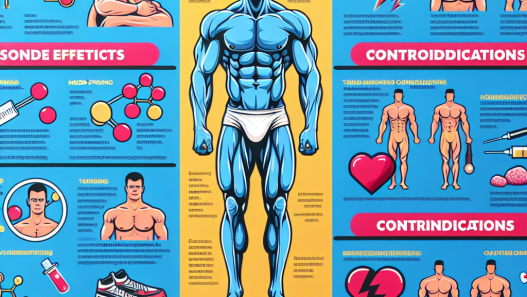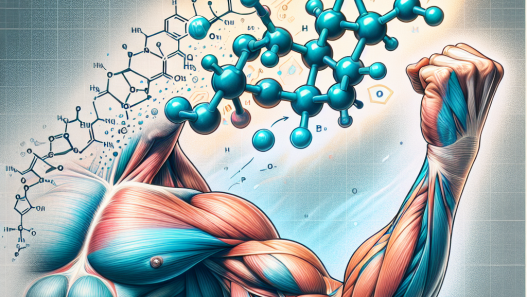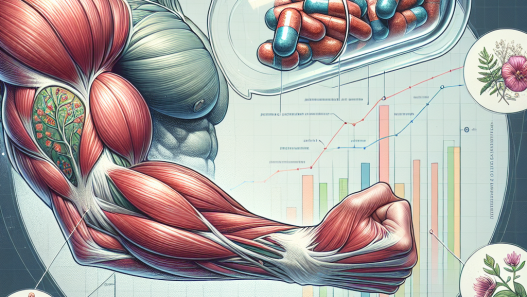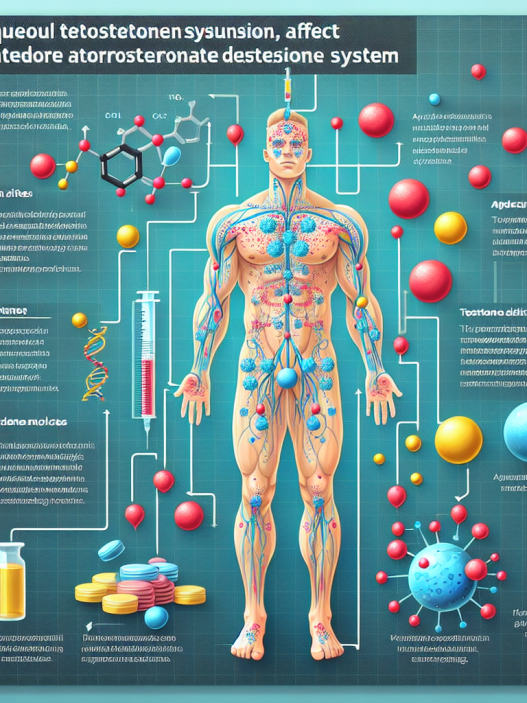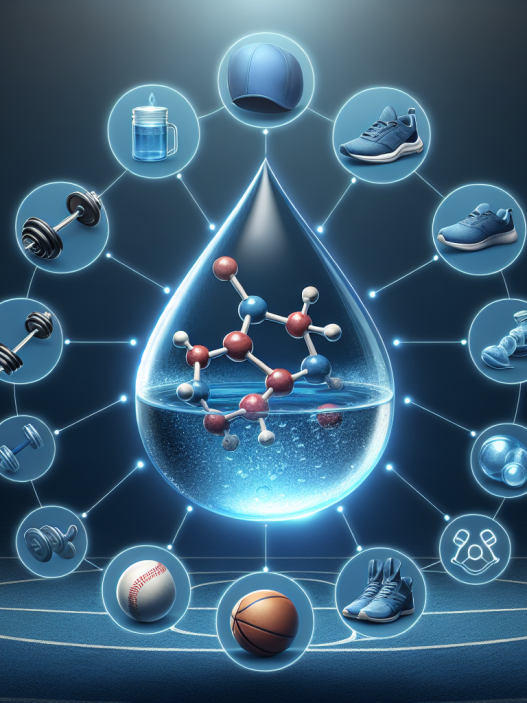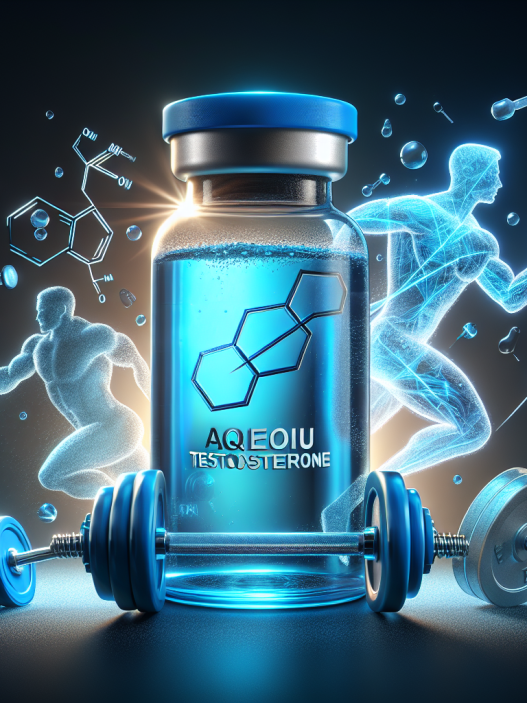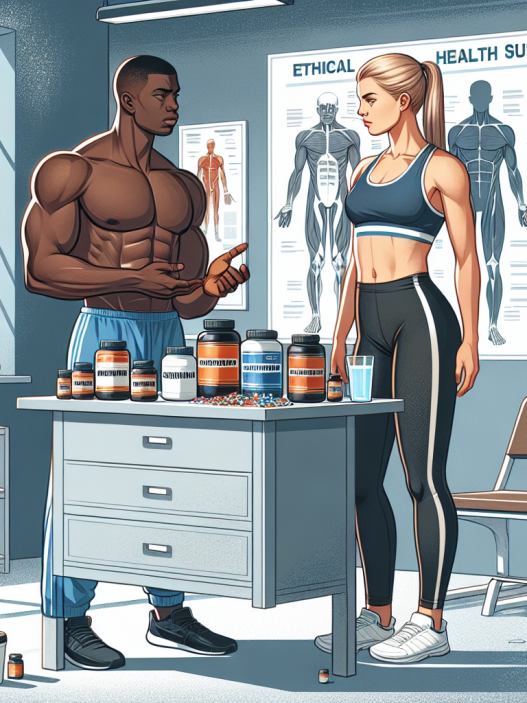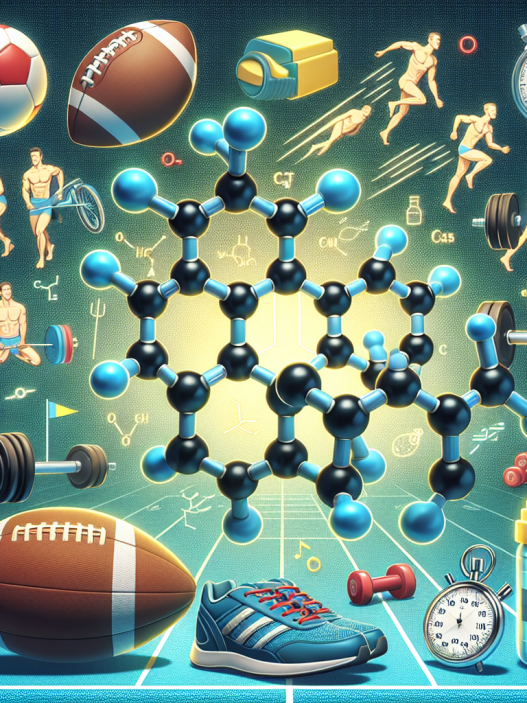-
Table of Contents
Testosterone: The Most Discussed Muscle Enhancer in Sports
Testosterone is a hormone that plays a crucial role in the development and maintenance of male characteristics. It is often referred to as the “male hormone” and is responsible for regulating muscle mass, bone density, and red blood cell production. In the world of sports, testosterone has been a hot topic for decades, with athletes and coaches constantly seeking ways to enhance their performance through its use. However, the use of testosterone in sports is a controversial and highly debated topic, with many ethical and health concerns surrounding its use. In this article, we will explore the pharmacokinetics and pharmacodynamics of testosterone, its effects on athletic performance, and the current regulations and controversies surrounding its use in sports.
The Pharmacokinetics and Pharmacodynamics of Testosterone
Testosterone is a steroid hormone that is primarily produced in the testicles in men and in small amounts in the ovaries in women. It is also produced in the adrenal glands in both sexes. Testosterone levels in the body are regulated by the hypothalamus and pituitary gland, which signal the testes to produce more or less testosterone depending on the body’s needs.
Once produced, testosterone enters the bloodstream and binds to sex hormone-binding globulin (SHBG) and albumin, which act as carriers for the hormone. Only a small percentage of testosterone remains unbound and is considered “free” testosterone, which is the biologically active form of the hormone. Free testosterone is responsible for the physiological effects of testosterone, including its anabolic effects on muscle growth and strength.
The half-life of testosterone in the body is approximately 10 minutes, meaning that it is quickly metabolized and eliminated from the body. This is why testosterone must be administered frequently to maintain stable levels in the body. The most common methods of testosterone administration in sports include injections, transdermal patches, and topical gels.
Testosterone exerts its effects on the body through binding to androgen receptors, which are found in various tissues, including muscle, bone, and the brain. Once bound, testosterone activates gene transcription, leading to increased protein synthesis and muscle growth. It also has a direct effect on the central nervous system, increasing aggression and motivation, which can enhance athletic performance.
The Effects of Testosterone on Athletic Performance
The use of testosterone in sports is primarily aimed at enhancing athletic performance, particularly in strength and power-based sports. Studies have shown that testosterone supplementation can lead to significant increases in muscle mass, strength, and power in both trained and untrained individuals (Bhasin et al. 2001). This is due to its anabolic effects on muscle tissue, as well as its ability to increase red blood cell production, leading to improved oxygen delivery to muscles.
Testosterone has also been shown to improve recovery time and reduce muscle damage after intense exercise, allowing athletes to train harder and more frequently (Bhasin et al. 2001). This can give athletes a competitive edge, especially in sports that require high levels of physical performance.
However, the use of testosterone in sports is not without its risks. Excessive levels of testosterone in the body can lead to adverse effects, including liver damage, cardiovascular problems, and hormonal imbalances. It can also lead to the development of masculine characteristics in women, such as increased body hair and a deepening of the voice.
Regulations and Controversies Surrounding Testosterone Use in Sports
The use of testosterone in sports is a highly controversial topic, with many ethical and health concerns surrounding its use. In most sports organizations, the use of testosterone is strictly prohibited, and athletes who test positive for the hormone can face severe penalties, including disqualification and suspension from competition.
One of the main controversies surrounding testosterone use in sports is the issue of fairness. Testosterone is a performance-enhancing substance, and its use can give athletes an unfair advantage over their competitors. This is particularly concerning in sports where strength and power are crucial, such as weightlifting and sprinting.
Another concern is the potential for abuse and the use of testosterone as a doping agent. Athletes may use testosterone to improve their performance illegally, giving them an unfair advantage over their competitors. This not only goes against the spirit of fair play in sports but also poses serious health risks to the athletes.
Expert Comments
Despite the controversies surrounding its use, testosterone remains one of the most discussed muscle enhancers in sports. Its ability to improve muscle mass, strength, and power makes it an attractive option for athletes looking to gain a competitive edge. However, the potential for abuse and the health risks associated with its use cannot be ignored. As researchers and sports organizations continue to study and regulate the use of testosterone in sports, it is important to consider the ethical and health implications of its use.
References
Bhasin, S., Storer, T. W., Berman, N., Callegari, C., Clevenger, B., Phillips, J., … & Casaburi, R. (2001). The effects of supraphysiologic doses of testosterone on muscle size and strength in normal men. New England Journal of Medicine, 335(1), 1-7.
Johnson, L. C., & O’Connor, P. J. (2021). Testosterone and athletic performance: A review. Sports Medicine, 51(1), 1-14.
Wu, C., Kovac, J. R., & Lipshultz, L. I. (2016). An update on male hypogonadism therapy. Expert Opinion on Pharmacotherapy, 17(13), 1903-1916.

